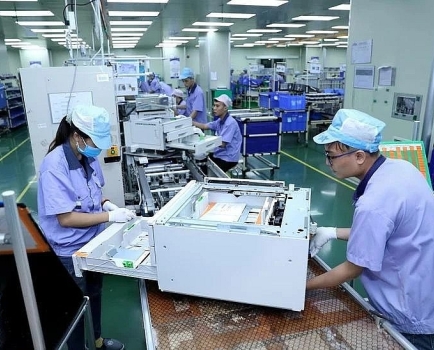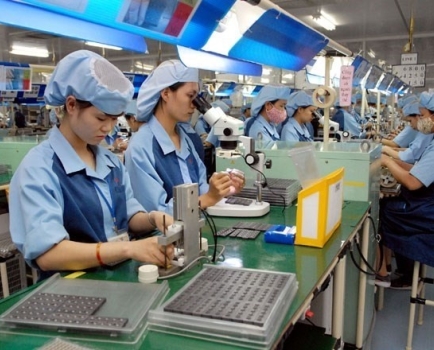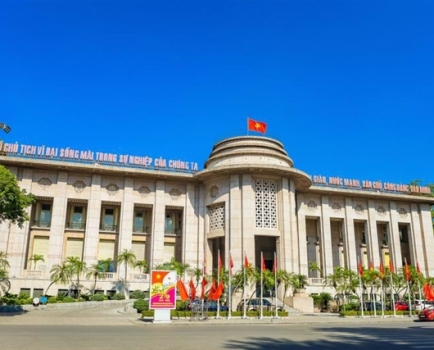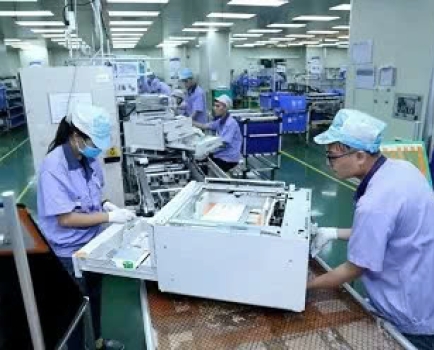Accelerating official fruit and vegetable exports to China
Thu, 05 Dec 2024 14:51:00 | Print | Email Share:
Vietnamese businesses must update and meet China's increasingly stringent food safety requirements.
 Currently, fruits and vegetables are the commodity group recording high export growth. Photo: NT
Currently, fruits and vegetables are the commodity group recording high export growth. Photo: NT
Key markets
According to the General Secretary of the Vietnam Fruit and Vegetable Association, Dang Phuc Nguyen, Vietnam's fruit and vegetable exports have great potential for export to the Chinese market because this is a large market with a large population and the second largest economy in the world, so the demand for fruit and vegetables is increasingly large, especially tropical fruits that Vietnam has the advantage of producing in large quantities and with good quality.
In addition, free trade agreements between Vietnam and China help reduce taxes and create favorable conditions for Vietnamese fruit and vegetable exports such as: ACFTA (ASEAN-China Free Trade Agreement), RCEP (Regional Comprehensive Economic Partnership Agreement). Not to mention, many types of Vietnamese fruits such as: durian, dragon fruit, banana, jackfruit, mango, passion fruit, lychee... are known and favored by Chinese consumers thanks to their delicious taste and quality that is not inferior to those of neighboring countries.
“In addition, the border gates in Vietnam are located very close to wholesale markets in China, thus greatly reducing the time it takes to transport fruits and vegetables from the production site to the consumer market in China, significantly reducing logistics costs compared to other countries.
Even seaports in China are very close to Vietnamese ports, which helps increase the competitiveness of the Vietnamese fruit and vegetable industry," said Mr. Dang Phuc Nguyen.
Ms. Nguyen Thi Thanh Thuc, General Director of AutoAgri Software Technology Joint Stock Company, said that there are currently many Chinese vegetable seed corporations wanting to develop in Vietnam. This is also a good opportunity when we do not have the ability to develop vegetable seeds.
If Chinese companies invest in Vietnam, with clear traceability of breeds and processes, high productivity, low cost... it will be more favorable for the negotiation process of official exports to China.
“In addition to consuming fresh fruits and vegetables, China is also a huge consumer market for processed foods. Chinese traders also hold the largest and most integrated food distribution system in the world.
If we have a cooperation mechanism and preferential investment policies for businesses investing in production linkage, purchasing and processing of vegetables and fruits in Vietnam, I am sure that Vietnam still has a lot of potential for the vegetable and fruit industry to officially export to China," Ms. Nguyen Thi Thanh Thuc said.
However, Vietnamese fruits and vegetables exported to the Chinese market must compete with fruits and vegetables from Thailand, Malaysia, the Philippines, Cambodia, Australia, etc., and also face pressure from similar domestically produced products.
“China’s food safety standards are increasingly stringent. Regulations on plant hygiene and animal quarantine are quite complicated and time-consuming.
Vietnam's exported fruits and vegetables must have a growing area code issued by the General Administration of Customs of China (GACC). Processing and packaging facilities must also register the code after strict inspection," Mr. Dang Phuc Nguyen analyzed. In addition, building a distribution channel is also a challenge. Because the majority of Vietnamese fruits and vegetables are sold to small traders, concentrated at the border, they have not penetrated deeply into the Chinese market.
Moving towards stopping informal export
Mr. Nguyen Trung Kien, representative of the Asia-Africa Market Department (Ministry of Industry and Trade), said that in the cooperation orientation of the Ministry of Industry and Trade with Chinese agencies and localities, the ministry will focus on accelerating the progress of opening the market for Vietnamese agricultural and aquatic products; improving customs clearance efficiency at border gates, openings, and border market pairs; perfecting border gate infrastructure; intelligently classifying goods; and exploiting Vietnam-China railway container transport routes.
The two sides also increased trade promotion activities, brand building, participation in fairs and exhibitions... China is a market with high and strict standards, so businesses need to quickly switch to formal trade, produce and export high-quality, sustainable products; and move towards stopping informal export.
To maximize the potential, according to Mr. Dang Phuc Nguyen, Vietnamese enterprises need to grasp the production season to adjust the production schedule and export Vietnamese goods to avoid competition. At the same time, improve product quality, invest in production and processing technology, apply international techniques and standards to ensure quality and food hygiene and safety; research advanced technologies for preserving and processing fruits and vegetables.
Besides, businesses also need to diversify products, not only focusing on a few types of fruit but also diversifying products including deeply processed products to meet the needs of consumers who are increasingly diverse in design and origin.
At the same time, cooperate with Chinese enterprises to build a supply chain and distribute Vietnamese fruit and vegetable products exported to China.
By: Ngoc Linh/Bui Diep, Customs News
Source: https://english.haiquanonline.com.vn/accelerating-official-fruit-and-vegetable-exports-to-china-32377.html
---------------------------------------------
Same category News :













